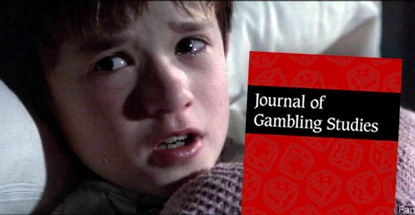A new study says pathological gamblers are more prone to cognitive distortions than non-gamblers.
A new report published in the Journal of Gambling Studies examined the phenomenon of probability matching, i.e. the tendency to match response proportions to outcome probabilities when predicting repeated binary outcomes. This is more commonly referred to as the gambler’s fallacy, in which some gamblers believe that because a roulette wheel has landed on red the last nine times, the odds favor the ball landing on a black square on the next spin.
The study, conducted by Wolfgang Gaissmaier of the University of Konstanz in Germany and Andreas Wilke of Clarkson University in New York, involved a sample group of 161 individuals: 91 regular casino gamblers and 70 control subjects. The study identified 28.6% of the gambling group as pathological gamblers compared to just 2.9% among the control group.
The participants were shown two slot machines. One machine was programmed to generate a win two-thirds of the time; the other machine gave out winnings one-third of the time. These odds weren’t explained to the participants but could be easily gleaned from experience via feedback. Participants were asked to predict which machine was more likely to pay out on each spin. Over time, the gamblers were found to be more than twice as likely (31.9% v. 15.7%) to engage in probability matching.
